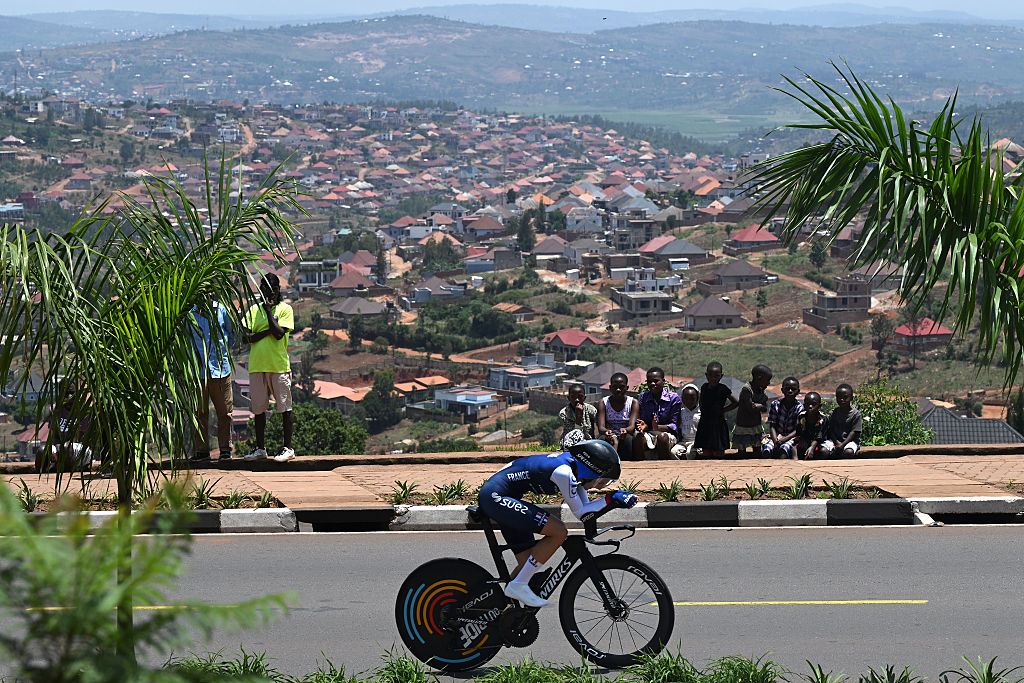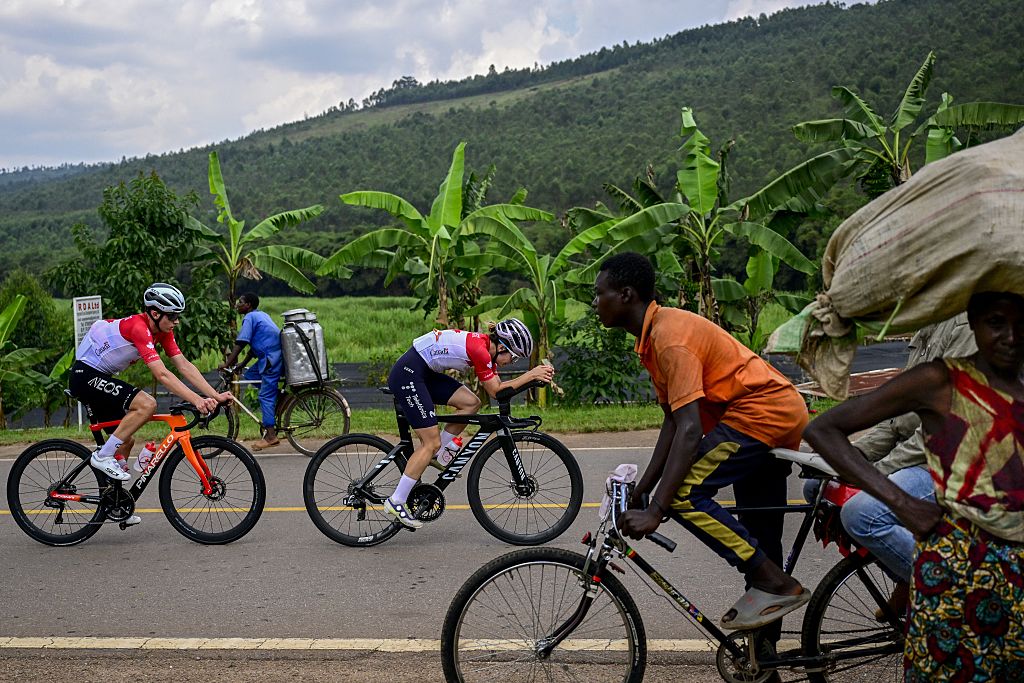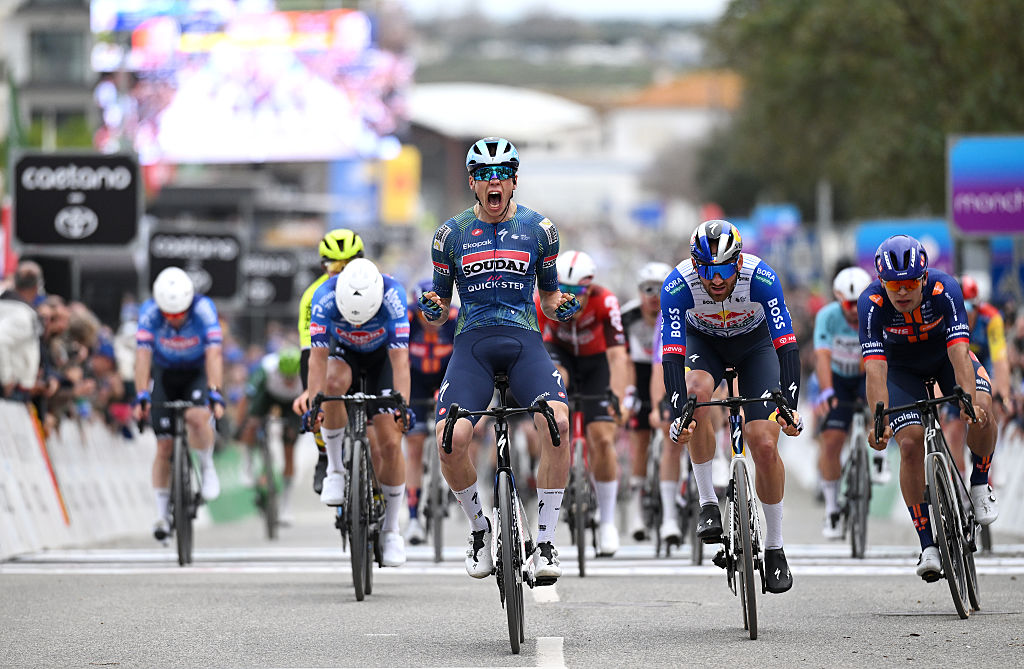Kigali conditions see top riders falter in elite time trials, but can they turn it around before the road races? – World Championships analysis
Heat, air quality and altitude takes a toll on several riders in what one called 'literally the hardest TT of my life'

The latest race content, interviews, features, reviews and expert buying guides, direct to your inbox!
You are now subscribed
Your newsletter sign-up was successful
If you look at the winners alone, there probably isn't much of a surprise in the outcomes of the elite men's and women's elite time trials at the UCI Road World Championships.
Dominant force Remco Evenepoel (Belgium) tightened his grip on the men's title, winning it for a third consecutive time, whilst Marlen Reusser (Switzerland) won the women's race, confirming her status as the peloton's eminent time trialist.
Look past those two newly-minted rainbow jerseys, though, and you'll find some surprising results, where many of the top riders failed to deliver, and others really struggled with the difficulty and conditions of the time trial courses.
Tadej Pogačar (Slovenia) started the men's time trial expecting to challenge Evenepoel for the title, and the pair did face off, but in totally the wrong way – when Evenepoel caught and passed Pogačar on the final climb. Considering the Belgian started two and a half minutes after Pogačar, it was a clear sign that the Slovenian was really not having a good day.
Even a bad day for Pogačar still meant fourth overall, and only one second off the podium in the end, but for a rider who has multiple Grand Tours, Monuments, and a world title to his name, even the podium wouldn't have been a huge result – fourth probably doesn't mean much.
In the women's race, Demi Vollering (Netherlands) finished third in the end, but had such a bad feeling that she crossed the line thinking she might be twentieth. Cédrine Kerbaol, who could reasonably have aimed for the podium finished 13th, 3:20 down, calling it "literally the hardest TT of my life".
Other riders who weren't challenging the top results, and perhaps weren't expected to, still crossed the line utterly cooked, many disappointed not with their actual result, but that they felt terrible, unable to give their best.
The latest race content, interviews, features, reviews and expert buying guides, direct to your inbox!
Part of the reason so many riders were so shocked at their sensations in the time trials seemed to come down to the conditions in Kigali. With the elite time trials opening the championships, which don't conclude for the elite riders until next weekend, many only arrived two or maximum three days ago, and have had little time to adapt to the conditions.
Kigali, 1,567m above sea level, with the altitude probably the thing that most riders did prepare for, but many didn't, and many reported other surprising factors in the conditions in the Rwandan capital.
"It's quite tough conditions here with the altitude, the pollution of the air, which I didn't expect actually to be so bad," Juliette Labous told Cyclingnews. There is dust and sand in the air in Kigali, and when the roads are open, vehicle fumes from cars and bikes are noticeable.
"Also the heat, it's quite warm and we are close to the ozone layer, and the air is quite thin so it's pretty hard to breathe. So I think it's a bit of a combination of everything. I think when we get a bit more used to it in the next days, it should be better, but today was not easy."
Her French teammate Kerbaol also suffered horribly in the time trial, failing to unlock the TT abilities that earned her the French national title earlier this year.
"Obviously, we were expecting it, but with the humidity of the air, the altitude, the heat and everything, it was literally the hardest TT of my life," she said. "I never [before] finished like I did today. It was really, really hard.
"I was not expecting to be so far [off]. I thought I could be a bit faster today," she continued. "The body needs time to become used to all these parameters. For sure, day after day, it will improve, and I hope to be back in a good shape for the team time trial."
For other, anomalous riders, the conditions were a good thing, with men's bronze medalist Ilan Van Wilder pointing to his track record of good altitude adaptation as a reason why he took the best result of his career on Sunday, but it was clear that for most, including the winners, the conditions were challenging.
Could riders have prepared better?
When it comes to the World Championships, every rider tries to prepare as much as possible, and many riders did undergo altitude training and heat adaptation before coming to Kigali, but there is only so much one can do to adjust to a very new environment.
Very few riders had the chance to visit Kigali before the Championships, and few could commit the time to arriving much earlier, especially given there's still a week until the road races.
"It was about finding the balance, because you also don't want to stay for two weeks here, otherwise you're a bit long away from home, and also you can prepare a bit less, and we were not sure about the hotel conditions and everything," Labous said of why riders didn't come to Kigali any earlier.
The difficulty of going out on longer training rides is also a reason why riders didn't come to Kigali earlier. For the TT specifically, riders also had limited time to train on the course, with the roads only closed on Saturday morning, and training on open roads proving a challenge with traffic.
"Of course it's not easy when you go to a completely different continent, but everyone adjusts and adapts," Kasia Niewiadoma-Phinney told Cyclingnews.
"It's also a short period of time, but personally I would definitely vote for having time slots even early in the morning to have the road closures so we can freely train on the course and feel more safe, even doing efforts, but I guess that's something we can work with the UCI on for the future if the Worlds are organised in countries less known for road cycling."

What it means for the road races
How all of this affected the time trial is already known, but the question now is what it means for the road races, where riders who struggled on Sunday, like Pogačar and Vollering, were hoping to win.
The good news is that the riders have a whole week now to adapt and adjust to the conditions in Kigali, so their bodies should feel much more settled and less disrupted when the elite road races roll around on Saturday and Sunday.
With such a gap, and riders staying in Kigali to acclimatise, there is probably no cause for concern for the likes of Vollering and Pogačar regarding their form or feelings for the road race, and both are still the favourites – they only finished third and fourth, after all, hardly disastrous, and neither are truly TT specialist either.
As long as neither is actually ill, the coming days should help them rediscover their best shape, and both have plenty of positives to look forward to in the road races: the courses suit them, and they both have big, strong teams.
Pogačar also has a knack for coming back from disappointment to pull out a win, and will certainly be spurred on by the fact he was bettered by Evenepoel on Sunday. He's not a rider who likes to be beaten too often.
Vollering also pointed to the fact that she is due to start her period as a reason why she may have struggled. The pre-menstrual luteal phase is known for higher levels of fatigue and higher risk of injury, so being at a better point in her cycle by next Saturday could also help.
The downside for these two top favourites, however, may be in the confidence that their rivals have gained, particularly in the case of Evenepoel and Pogačar. The Belgian and his team may see weakness ready to exploit, and have extra belief in their ability to beat the Slovenian next Sunday.
As for those riders who really struggled in the conditions, they will just be hoping to adapt and to be able to get out of the chaos and lower air quality of Kigali for training this week. Sunday was a shock to the system, and a surprise to many, but the road races will be much different, so no one can be written off, even those who looked very off the pace in the TT. Once they've adapted, riders like Labous or Thymen Arensman, for example, may even find they thrive even more.
For some riders, there is another chance on the TT bike on Wednesday with the team mixed relay, and then it's all about the road races, where the tactics and dynamics can also level things out – it's not all about the body in the way that a TT can be.
Kerbaol put it best on how disappointment today can fuel riders for the races still to come: "I hope I'm going to transform this into rage and use it for the team time trial."
Subscribe to Cyclingnews to unlock unlimited access to our coverage of the first-ever UCI Road World Championships on African soil. Our team of journalists will bring you all the major storylines, in-depth analysis, and more directly from the action in Rwanda as the next rainbow jerseys are decided. Find out more.
Matilda is an NCTJ-qualified journalist based in the UK who joined Cyclingnews in March 2025. Prior to that, she worked as the Racing News Editor at GCN, and extensively as a freelancer contributing to Cyclingnews, Cycling Weekly, Velo, Rouleur, Escape Collective, Red Bull and more. She has reported from many of the biggest events on the calendar, including the Giro d'Italia, Tour de France Femmes, Tour of Flanders and Paris-Roubaix. She has particular experience and expertise in women's cycling, and women's sport in general. She is a graduate of modern languages and sports journalism.
You must confirm your public display name before commenting
Please logout and then login again, you will then be prompted to enter your display name.
